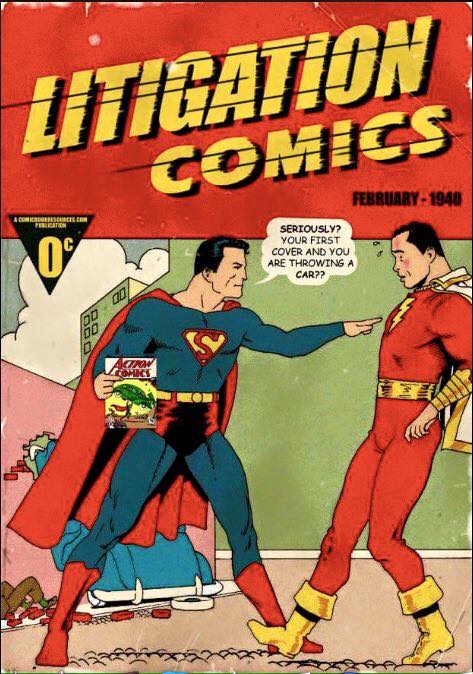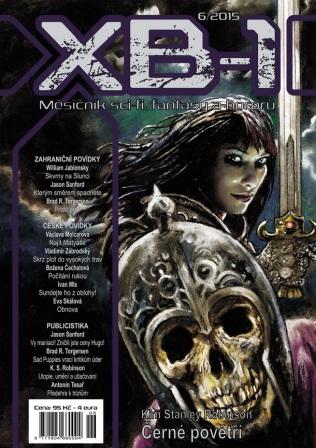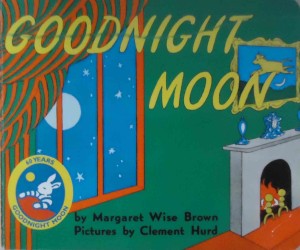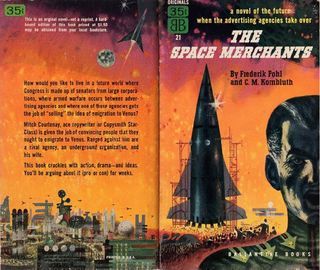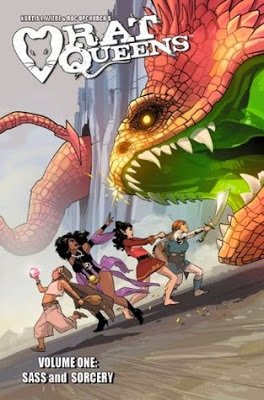(1) BREAKING THINGS. Wired studies the physics behind the destruction of a Super Star Destroyer in Star Wars.
The Mass of the Death Star
The real question remains—why is it moving so fast? There are three possible answers:
After rebels destroyed the bridge, the Super Star Destroyer veered out of control and used its thrusters to drive into the Death Star.
The Destroyer used its engines in some way to stay above the Death Star. The attack eliminated this ability, and the ship fell into the Death Star due to the gravitational interaction between the two objects.
The impact was the result of the engines and gravity.
For the purpose of this analysis, I am going to assume the collision was due only to the gravitational interaction. If that’s the case, I can use this to estimate the mass of the Death Star.
(2) ANATOMY OF A REWRITE. Mark Hamill confirmed the story: “It’s official: ‘The Force Awakens’ almost started with Luke’s severed hand”.
“I can tell you now, the original opening shot of [Episode] VII, the first thing that came into frame was a hand and a lightsaber, a severed hand,” Hamill reveals in a video Q&A with The Sun timed to May the 4th. “It enters the atmosphere [of the desert planet Jakku] and the hand burns away.”
The lightsaber landed in the sand, and an alien hand picked it up. Hamill says he doesn’t know if that alien was Maz Kanata, the castle owner who has the lightsaber in a trunk in the movie.
Then “the movie proceeds as you see it” — presumably meaning we’d cut from the alien hand to a Star Destroyer above Jakku as Stormtroopers depart in shuttles, then Max Von Sydow handing the all-important map with Luke’s whereabouts to Oscar Isaac.
(3) FOURTH WITH. Digg has a compilation of Star Wars related fan art.
The “Star Wars” fanbase has always been fantastically passionate and creative, so in honor of their greatest holiday, here’s a bunch of different kinds of fan art to represent every corner of the “Star Wars” universe.
(4) FASHION STATEMENT. Michael A. Burstein had a big day, and shared a photo with his Facebook readers.
Today, I was sworn in for my fifth term as a Brookline Library Trustee. In honor of Star Wars Day, I wore my Han Solo vest.
(5) EQUAL TIME. That other famous franchise is making news of its own. Canada Post will issue a set of Star Trek themed stamps to commemorate the show’s 50th anniversary. Linn’s Stamp News ran an article about the stamp for Scotty.
The three previous Canada Post Star Trek designs have pictured William Shatner as Capt. James T. Kirk on a commemorative stamp similar to the Scotty design, the Starship Enterprise on a coil stamp, and Leonard Nimoy as Spock, also in commemorative format. Full details of the set, and the planned issue date, have not been officially revealed by Canada Post, though information released with the “Scotty” stamp design added, “More stamps are to be revealed soon.”
And Canada Post has release several short videos previewing the series.
(6) YOU DID IT. Donors stepped up to support Rosarium Publishing’s Indiegogo appeal and Rick Riordan dropped $10,000 of matching funds in the pot. The appeal has now topped $40,000 in donations.
(7) J.K. ROWLING’S ANNUAL APOLOGY. On May 2, the anniversary of the Battle of Hogwarts, J.K. Rowling followed her tradition.
Once again, it's the anniversary of the Battle of Hogwarts so, as promised, I shall apologise for a death. This year: Remus Lupin.
— J.K. Rowling (@jk_rowling) May 2, 2016
In the interests of total honesty I'd also like to confess that I didn't decide to kill Lupin until I wrote Order if the Phoenix.
— J.K. Rowling (@jk_rowling) May 2, 2016
Arthur lived, so Lupin had to die. I'm sorry. I didn't enjoy doing it. The only time my editor ever saw me cry was over the fate of Teddy. ????
— J.K. Rowling (@jk_rowling) May 2, 2016
(8) FIRST FAN. Inverse knows this is the perfect day to dip into Craig Miller’s font of Star Wars anecdotes: “George Lucas’s Original Plans for ‘Star Wars: Episode VII’ and Boba Fett Revealed”.
Craig Miller, Lucasfilm’s first fan relations officer, reveals the original plan for ‘Return of the Jedi.’
…“At first there was one film, and then George originally announced that it was one of 12, and there were going to be 12, and then that changed to, oh there was never 12, there was only 9, and he was going to make 9,” Miller said. “And then during all of it, George kind of lost interest in continuing it… While we were working on The Empire Strikes Back, George decided he was going to complete the first film trilogy and that would be it.
“And I remember sitting in a mixing room with George, working on Empire, and he told me he was just going to make the third movie, which didn’t have a title at that point, and then stop,” Miller continued. “He was going to retire from making big movies and make experimental movies. And that’s why the whole plot of the third movie, what became Return of the Jedi, completely changed.”
Lucas’s 15-year retirement from Star Wars didn’t do much to derail the enthusiasm amongst hardcore fans, who showed early on that they were very, very dedicated to the Galaxy far, far away. Miller remembers one of his better publicity coups, setting up an 800 number (1-800-521-1980, the film’s release date) that allowed fans to call in before Empire and hear little clues about the upcoming sequel, as recited by Luke, Leia, Han Solo, C-3PO and Darth Vader.
“There was no advertising; we talked about it at conventions, and Starlog ran a two paragraph announcement of it,” Miller recalled. “And with just that, we completely swamped the 800 system.”
AT&T forced Lucasfilm to buy more phone lines, cease their advertising (easy, since they weren’t doing any), and apologize to the public and other 800-number users. “That was great because now it was being carried all over the world that we were apologizing that Star Wars fans were so enthusiastic about seeing Empire that they swamped AT&T,” Miller said, laughing.
(9) MAKING THE SCENE. Cat Rambo shares some material from a class, that takes apart what having a scene gives you for purposes of making it into a story: “More From Moving from Idea to Draft”
What it is:
A scene is usually a moment in time that has come to you. It usually has strong visual elements, and something is usually happening, such as a battle, or has just happened in it (a battlefield after the fighting is done). It is probably something that would appear at a significant moment of a story and not be peripheral to it.
What it gives you:
- Everything but the plot. But actually, that’s not true. What is the main source of tension in the scene, what is the conflict that is driving things? That is probably a version of the overall plot.
- A scene gives you a strong slice of the world and all that is implicit in that, including history and culture.
- If characters are included in your scene, they are usually doing or have just done something more purposeful than just milling about. You have some sense of their occupation, their economic circumstances, and often some nuances of their relationship.
(10) NED BROOKS. Part of the late Ned Brooks’ fanzine collection is on display at the University of Georgia, where his family donated it.
Some of Ned Brooks Fanzine Collection, now available @ugalibs Special Collections. @NASA_Langley #file770 #scifi https://t.co/BOzJqiyvJj
— Emily W. Thompson (@DrEmilyT) May 4, 2016
The university library’s blog has posted “To Infinity and Beyond! Selections from the Ned Brooks Fanzine Collection”.
A look at a fun collection examining all facets of science fiction fandom. Included are representative fanzine titles from the 17,000+ issues to be found in the Brooks zine collection. They represent a variety of times (including the zine some hold to be the earliest Science Fiction zine in the U.S., Planet #1, from July of 1930), a myriad of international locales, and a broad spectrum of specialized Fandom communities and their interests. Mementos from Brooks’ 38-year career with NASA’s Langley Research Center, along with a vintage typewriter and early reproduction equipment.
The exhibit, in the Rotunda of the Russell Special Collections Libraries, will be up through July.
(11) COOL SPACE PICTURES. Digg has “The Best Space Photos from April”.
Every day satellites are zooming through space, snapping incredible pictures of Earth, the solar system and outer space. Here are the highlights from April.
(12) YA AND AWARDS. Joe Sherry makes raises a point about YA in his post about “2016 Locus Award Finalists” at Adventures in Reading.
This is likely worth a longer discussion, but this year’s Locus Awards are pretty close to what the Hugo Awards should have looked like in the absence of the Rabid Puppy participants voting a slate in apparent lockstep….
Now, there are things we can argue with because it isn’t an awards list or a list of books at all if there isn’t something to argue with. For example, the YA category features five books written by men even though a huuuuuuge number of YA novels are written by women. Further, Navah Wolfe points out that the nominees in this category are, across the board, writers best known for adult science fiction and fantasy.
In terms of the Locus Awards, I think this is a bug rather than a feature. Locus (and it’s readers who voted / nominated), as a whole, is far more plugged into the adult SFF scene. Their nominees for Young Adult Book very strongly reflects this.
This isn’t to say that these finalists are bad, because they very much are not, but they are also not reflective of the YA field.
A committee has been looking at a proposed YA Hugo category for a couple of years. The Hugo voter demographic is probably similar to that of Locus voters. So if we make two assumptions – that the category had existed this year and was not affected by a slate – wouldn’t the shortlist have looked pretty much like the Locus Award YA novel category? And how does that affect people’s interest in having a YA Hugo category?
(13) DEFECTION FROM THE RANKS.
https://twitter.com/ferdinandpage/status/727766395719651329
https://twitter.com/damiengwalter/status/727748585132072960
(14) ANOTHER SHOCK. Because that’s what popularly voted awards do?
https://twitter.com/ApeInWinter/status/727758368555806720
(15) USE OF WEAPONS. Paul Weimer curated the latest SF Signal Mind Meld reading pleasure today, in which people talk about their favorite SF/F weapons.
(16) TODAY IN HISTORY. Norm Hollyn remembered on Facebook:
May 4 is the 19th anniversary of the death of Lou Stathis, one of my closest friends and major influences (I first heard the Mothers thanks to him). Hopefully you’re happily playing the kazoo wherever you are.
(17) HAY THERE. Signal boosting author Judith Tarr’s appeal to help feed her horses.
Right now I do not know how I’m going to feed the horses for the rest of the month. I have managed to scrape out enough to pay for the last load of hay (if that late check finally gets here), but once it’s eaten, which it will be in about ten days, I don’t know what I’m going to do. The farm will be gone by midsummer unless I find a steady source of sufficient income. I’ve been hustling like a hustling thing but so far with minimal results.
The market does not want either me or the horses. The horses are all old and therefore retired and unsalable, or else would require thousands of dollars’ worth of training and show fees to have any sale value. No one can take them. The market is saturated with unwanted horses and the rescues are overloaded. I am over 60, hearing impaired (ergo, unable to use the phone), and with chronic fatigue syndrome which makes office or minimum-wage work difficult to impossible. And minimum wage would not support the animals, let alone me. All my income streams from backlist books, editing, writing, etc. have shrunk to a trickle or dried up. No one has booked a Camp in over a year.
I have had a few small things come through, but as with everything else, they’ve fallen short or failed to produce. I continue to push, and with the fiction writing regaining its old fluidity, I may manage to make something happen there. I’ve been urged to try an Indiegogo for a short novel, and I am closing in on that. (Indiegogo, unlike Kickstarter, offers an option that pays even if the goal is not met. The goal would be enough to cover mortgage, horses, and utilities for a month.) Since for the first time in my life I’m able to write more than one project at a time, that means I can continue to meet my obligation to backers of last November’s Kickstarter for a science-fiction novel, and also write the novella (and short stories, too).
A friend suggested that I offer sponsorships for the horses. I feel weird about that, but they need to eat. What I would give in return is a little writeup about the horse being sponsored, with a digital album of pictures and a monthly update. And short fiction as it happens, if you are a reader with an interest….
Details and specific support levels at the site.
(18) MEMORY OF THINGS PAST. Katster once was “Dreaming of Rockets”
Of course things got derailed. My cunning plan to eventually raise myself to a point where I’d get notice from the nominating body of Worldcon crashed hard with two factors — the rise of blogs and fancasts as well as the related fact that pros were getting nominated in the fan awards and, more importantly, my own demons.
I’d end up semi-GAFIAting (the acronym means Getting Away From It All, and covered anybody who’s dropped out of science fiction) and not being very enamored of fandom in general. The break point came in 2013, with a completely different award. Fanzine fandom recognizes its own in an award called the Fan Achievement Awards (FAAns) and I’d hoped a particular issue of my fanzine Rhyme and Paradox I’d poured my heart into might have a chance at Best Issue. A friend of mine said he was nominating it, and I hesitantly nominated it myself, hoping in some way that it would end up on the shortlist. It didn’t, and the award was won by somebody that was well known in fandom for a typical issue of his (once a year) fanzine.
The blow really came when I got ahold of the longlist and found how many votes my ‘zine had gotten. It had gotten two, one from my friend and one from me. It stung like hell. Here I had poured my heart out writing that zine (I still think it’s some of my best writing ever) and it had sailed quietly in the night. I know, it’s just an award, and all these things are popularity contests, but even now, I feel the hurt in that moment.
I wonder if it’s the same hurt that has fueled the slates. The influence of failing to get an award did somewhat lead Larry Correia to start making slates. As I’ve said before, the Hugos were vulnerable to this kind of attack, but it was explained to me pretty early in fandom that making slates was anathema in fandom, a policy only practiced by Scientologists. Everybody knows where the rest of this story goes.
(19) ANTI. “’Ghostbusters’ Is the Most Disliked Movie Trailer in YouTube History” says The Hollywood Reporter.
Not only does it have the most dislikes for a trailer on the social platform, but it also makes the top 25 most disliked videos overall.
Things are not boding well for director Paul Feig’s upcoming Ghostbusters based on the film’s first official trailer on YouTube.
Released March 3, the trailer, viewed 29.2 million times and counting, is the most disliked movie trailer in YouTube history, according to “MyTop100Videos” channel’s “Most Disliked Videos” list that was last updated April 16. (Justin Bieber comes in at No. 1 with 5.99 million dislikes for “Baby.”)
Coming in at No. 23, the reboot — starring Melissa McCarthy, Kristen Wiig, Kate McKinnon, Leslie Jones and Chris Hemsworth — has more than double the number of dislikes as likes (208,606)….
Although there has been controversy over the trailer, with many YouTube comments centered around the all-female cast, the video has been generating mostly positive reviews on Facebook with 1,186,569 positive reactions (like, love, haha and wow) and 32,589 negative reactions (sad, angry). The reactions add up to 97.3 percent positive sentiments on Facebook overall.
(20) BREAK THE PIGGY BANK. Coming August 16 in Blu-Ray/DVD — “The Adventures Of Buckaroo Banzai Across The 8th Dimension [Collector’s Edition]”. (Doesn’t it feel like you’ve been reading the word “buckaroo” a lot this week?)
Expect the unexpected… he does.
Neurosurgeon. Physicist. Rock Star. Hero. Buckaroo Banzai (Peter Weller, Robocop) is a true 80s renaissance man. With the help of his uniquely qualified team, The Hong Kong Cavaliers, Buckaroo is ready to save the world on a moment’s notice. But after his successful test of the Oscillation Overthruster – a device that allows him to travel through solid matter – he unleashes the threat of “evil, pure and simple from the 8th Dimension”… the alien Red Lectroids.
Led by the deranged dictator Lord John Whorfin (John Lithgow), the Lectroids steal the Overthruster with the intent of using it to return to their home of Planet 10 “real soon!” But no matter where you go, there Buckaroo Banzai is… ready to battle an interdimensional menace that could spell doom for the human race.
How can Buckaroo stop the Lectroids’ fiendish plots? Who is the mysterious Penny Priddy? Why is there a watermelon there? For the answers to these and other questions, you have to watch The Adventures of Buckaroo Banzai, monkey boy!
[Thanks to John King Tarpinian, Mark-kitteh, James Davis Nicoll, Will R., Martin Morse Wooster, and Andrew Porter for some of these stories. Title credit goes to File 770 contributing editor of the day Daniel Dern.]







